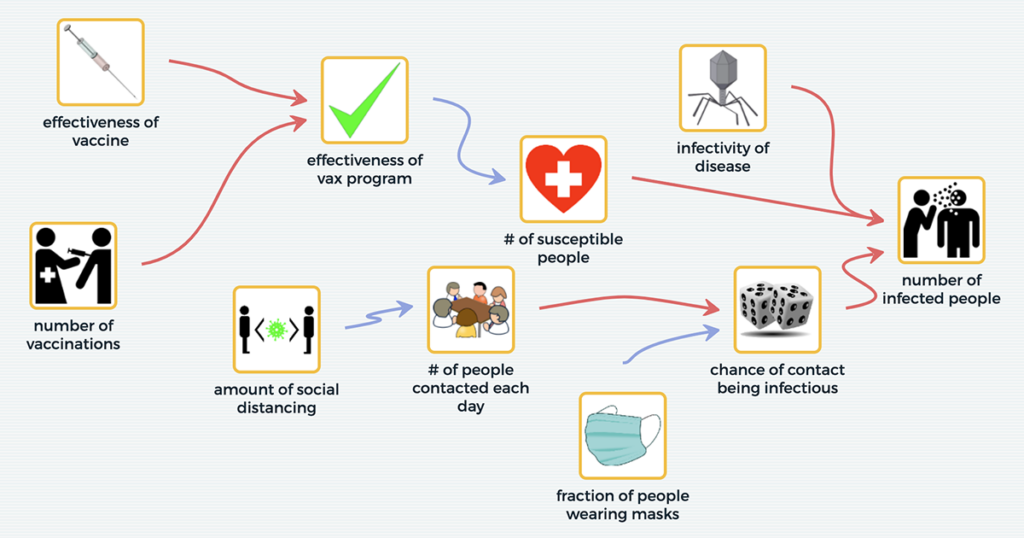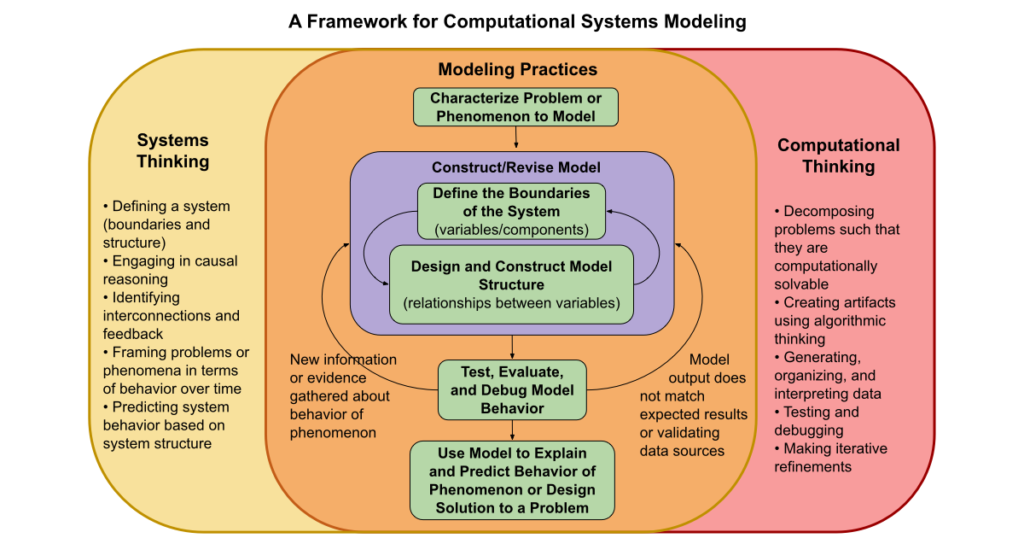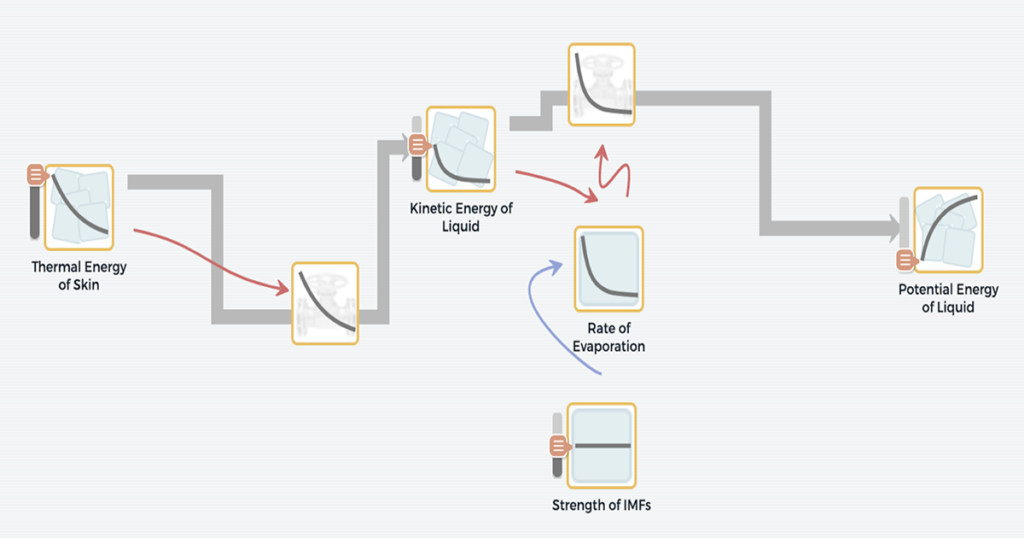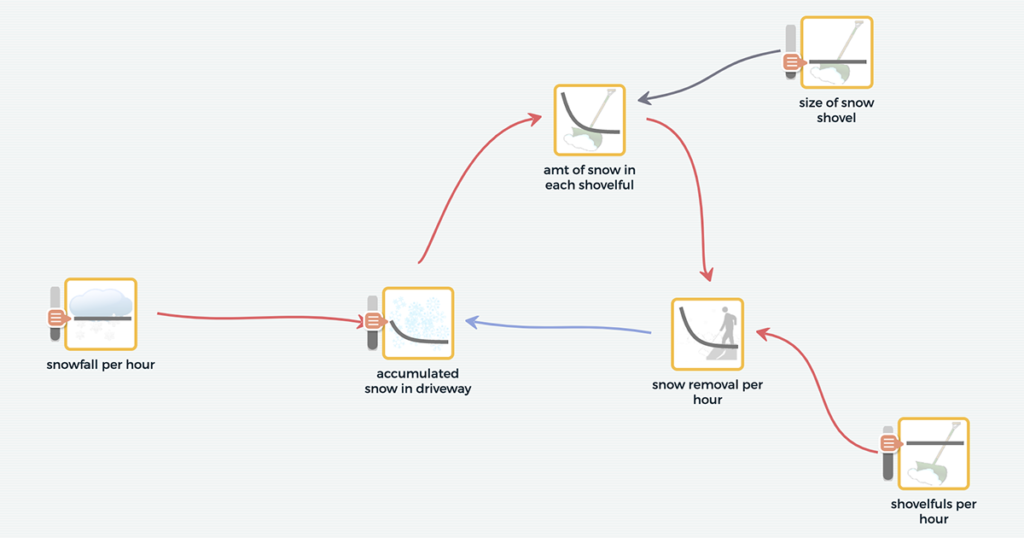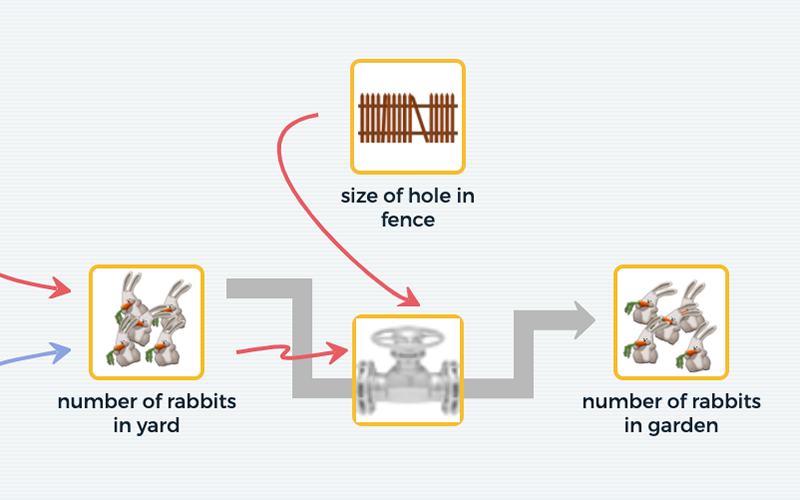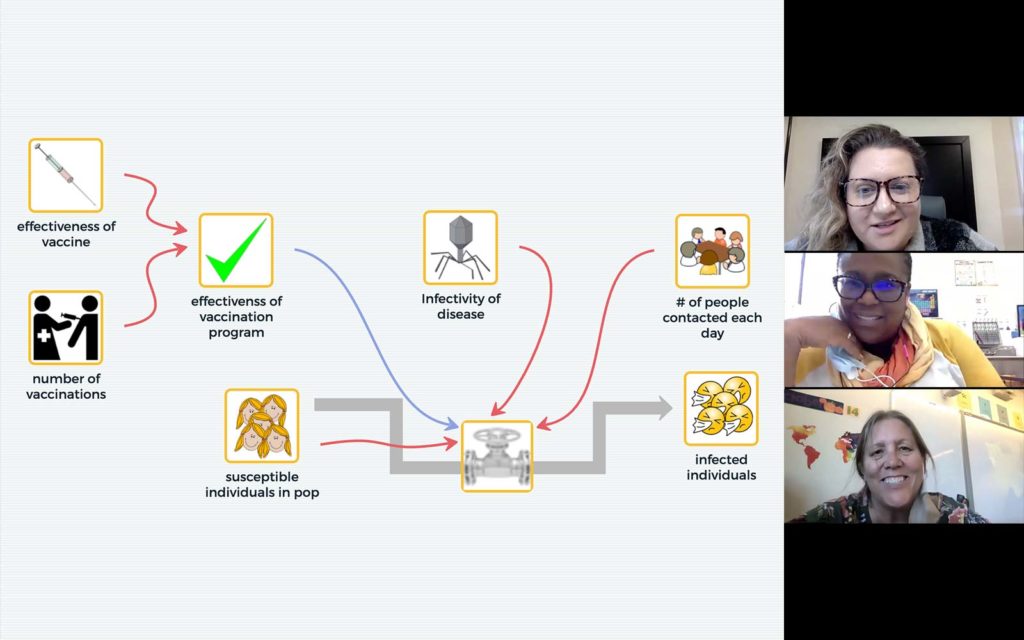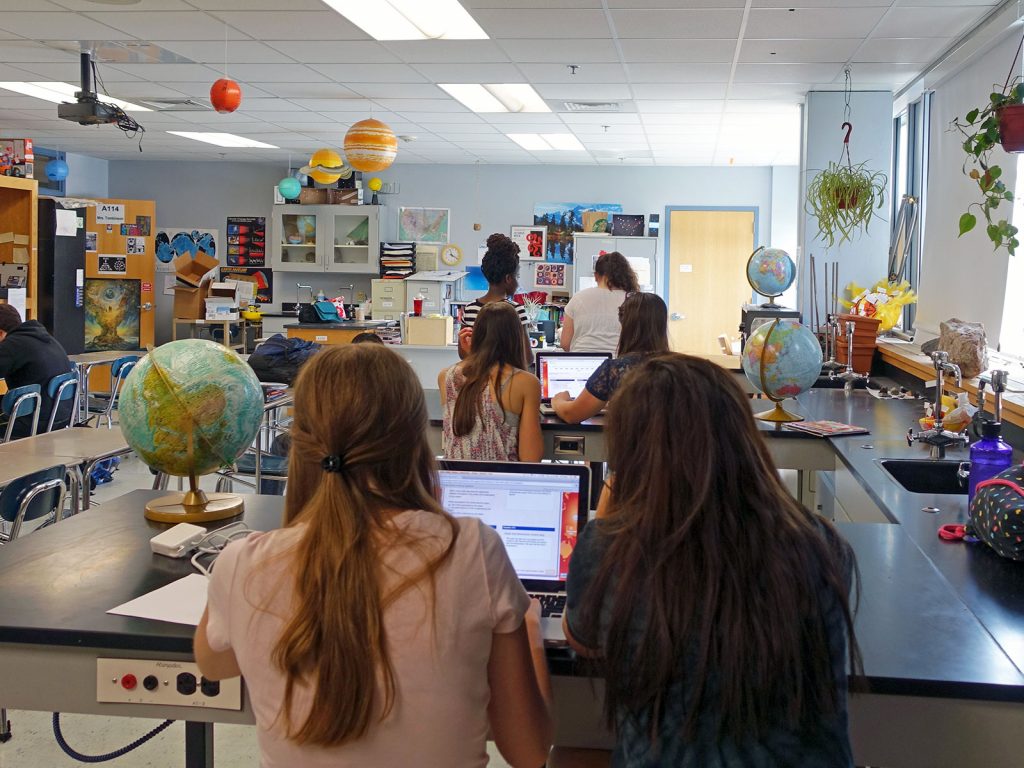Category: Tag: systems-modeling
From local environmental justice issues to global phenomena such as climate change, complex problems often require systems thinking to address them. Since 2018, the National Science Foundation-funded Multilevel Computational Modeling project, a collaboration between the Concord Consortium and the CREATE for STEM Institute at Michigan State University, has researched how the use of our SageModeler […]
Our Multilevel Computational Modeling collaborative project with Michigan State University has developed a novel theoretical framework based on a literature review of modeling, systems thinking (ST) and computational thinking (CT). The framework, which was also informed by years of work developing our SageModeler systems modeling software and researching student modeling, highlights how both ST and […]
Have you ever wondered why, even on a very hot day, you feel cold when coming out of a pool, lake, or sprinkler? The Multilevel Computational Modeling project, a collaboration with the CREATE for STEM Institute at Michigan State University, has developed a new curriculum unit called “Why do I feel colder when I am […]
Cleaning the house while the children are growing is like shoveling the driveway while it’s still snowing. A framed needlepoint of this adage adorned the wall of our kitchen as I was growing up and its message occupied my thoughts as I shoveled our New England driveway for the third time in just over a […]
We live in an interconnected world. A storm hits, the season’s crop is ruined, stocks go higher or lower, and a broker loses a job. A governor’s actions on mask mandates affect travelers in and out of the state, and COVID cases rise across the country. Or as Thich Nhat Hanh says in The Heart […]
The Concord Consortium and Michigan State University are collaborating to offer remote professional learning to high school teachers to engage their students in three-dimensional learning using SageModeler for system modeling and computational thinking.
The High-Adventure Science modules, first written in 2011-2013, are each based on a big unanswered question in Earth/environmental science. These six modules include interactive computer-based systems models and real-world data that students use for evidence as they develop scientific arguments. The modules incorporate real-world data from the National Aeronautic and Space Administration, National Oceanic and […]
The Concord Consortium and Michigan State University are collaborating to research technological, curricular, and pedagogical scaffolds needed to support students and teachers in developing computational thinking in the context of system modeling.
We’re enabling new modes of experimentation and fostering levels of learner reasoning about complex systems and systems dynamics that are not currently possible by merging MIT’s StarLogo and the Concord Consortium’s SageModeler.
Michigan State University and the Concord Consortium are collaborating to examine how to support secondary school students in constructing and revising models based on disciplinary core ideas and crosscutting concepts to explain scientific phenomena.
